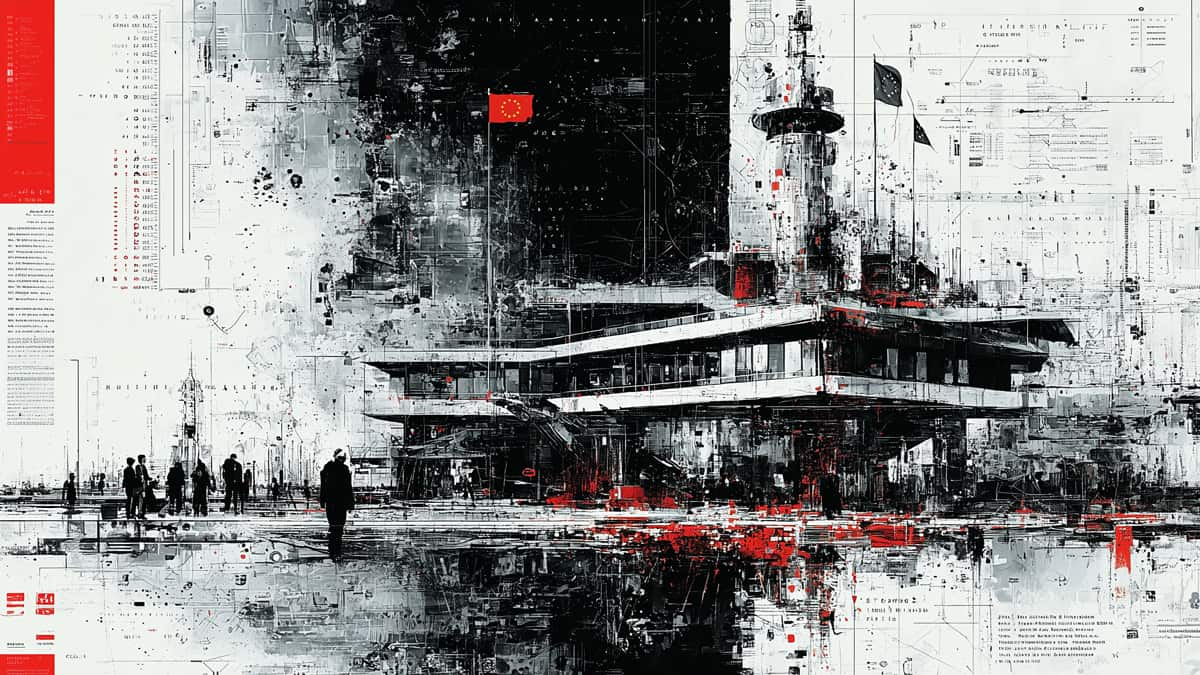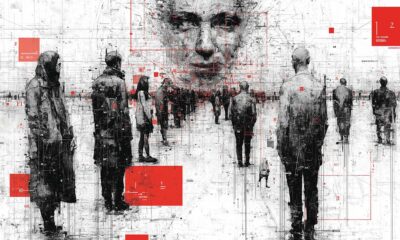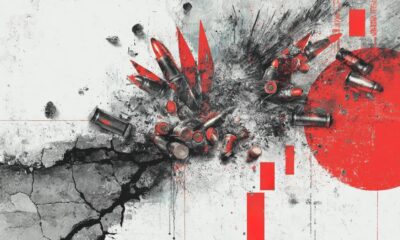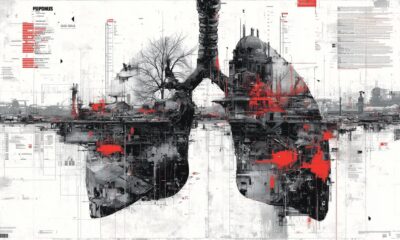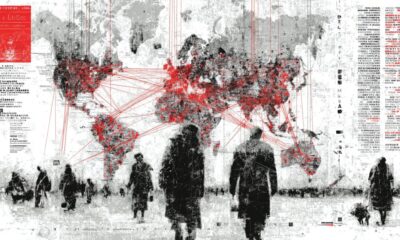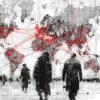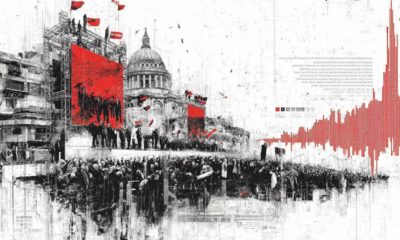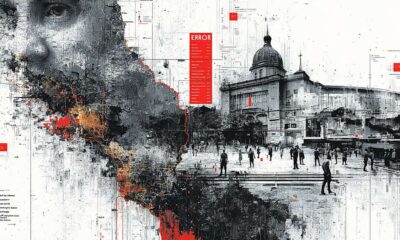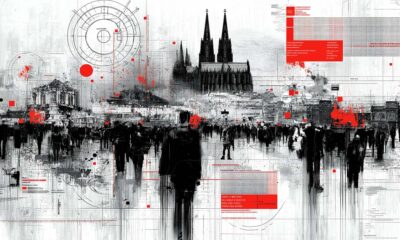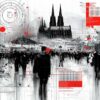Germany
Narco-Reich or How Germany Lost the War on Drug Trafficking and Became the Epicenter of Europe’s Drug Crisis
In February 2021, customs officers in Hamburg’s sprawling container port discovered 16 tons of cocaine hidden in shipping containers from Paraguay—Europe’s largest seizure to that date, worth €1.5-3.5 billion on the street.
The scale of infiltration became undeniable as cocaine seizures in Hamburg tripled from 9.5 tons in 2019 to 34 tons in 2023. Nationally, Germany seized 43 tonnes of cocaine in 2023—double the 2022 quantity—making Hamburg Europe’s third most important cartel port after Antwerp (116 tons) and Rotterdam (59 tons). What made Germany an export champion—efficient logistics, minimal EU border controls, massive consumer markets—became drug traffickers’ greatest asset.
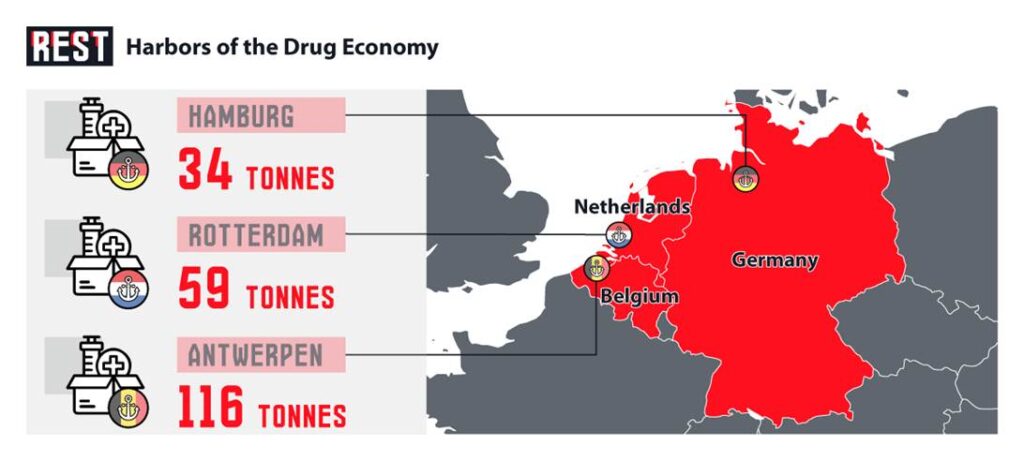
The cartels exploited Germany’s economic strengths systematically. Massive container ports handling millions of annual shipments provided perfect smuggling cover, while Germany’s central European position, with advanced highway networks, rail connections, and river systems, created countless distribution routes once drugs cleared ports. Officials estimate each kilogram detected represents nine kilograms reaching markets—meaning 2023’s 43-ton seizures suggest nearly 400 tons successfully entered European distribution networks.
The human toll proved devastating. In 2023, German police recorded 346,877 drug-related offenses (1.8% increase), with cocaine-related crimes surging 27.4% to all-time highs. Drug-related deaths rose 11.9% to 2,227 fatalities, averaging 41 years old with men comprising 82.8%. Germany’s crisis reflects broader European transformation—EU Member States reported record 419-tonne cocaine seizures in 2023, the seventh consecutive record year.
As BKA vice president Martina Link warned: “Europe’s North Sea ports have become the most important gateways for narcotics import.” What began as opportunistic trafficking evolved into systematic infrastructure infiltration. Germany, once Europe’s stability symbol, now anchors a continental drug crisis threatening societal foundations.

POLICY PARALYSIS
The Merkel Era’s Fatal Blind Spots (2005-2021)
When Angela Merkel took office in November 2005, Germany was the “sick man of Europe” with 13% unemployment. By 2021, unemployment had plummeted to 6.2% and Germany dominated European economics. But beneath this transformation lay a fatal flaw: fiscal austerity that crippled Germany’s ability to fight the brewing drug crisis.
Merkel’s signature “Schwarze Null” balanced budget policy ran surpluses for eight consecutive years (2012-2019), reducing debt from 80% to 60% of GDP. This fiscal conservatism became a political fetish—the CDU posted social media images of the black zero wearing a leather cap: “Yes, we admit we have a little fetish: solid finances without new debts!” The black zero’s devastating cost included systematic cuts to infrastructure and law enforcement.
While Merkel increased social welfare spending to nearly €1,000 billion annually, operational budgets for law enforcement remained constrained. The Bundeswehr lacked basic equipment—if Germany’s military was this neglected, what resources fought sophisticated international drug cartels? During cocaine trafficking’s explosion through German ports, political attention focused on cannabis liberalization rather than hard drug threats. Cannabis offences dominated 2019 statistics (65% of cases) while cocaine trafficking accelerated undetected.
Verifiable BKA data reveals the scale of criminal neglect: cocaine seizures exploded from just over one tonne in 2016 to nearly seven tonnes in 2017—a dramatic 600% increase in a single year. This surge continued with 16 tonnes seized in 2021, 20 tonnes in 2022, and 43 tonnes in 2023, yet no corresponding surge in enforcement resources followed.
Germany’s fiscal orthodoxy extended to European cooperation—while demanding austerity from crisis-hit countries, Berlin failed to invest in cross-border enforcement. Intelligence sharing remained bureaucratic, hampered by insufficient IT systems and understaffed analysis units.
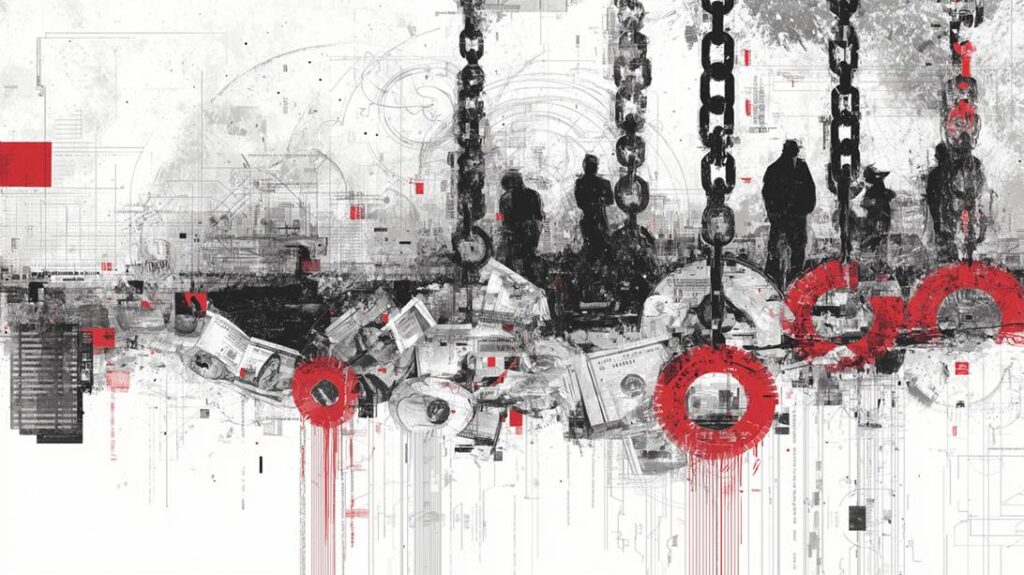
DIGITAL DRUG EMPIRE
Dark Web Makes Germany the Amazon of Narcotics
While German authorities obsessed over balanced budgets, criminals built the world’s most sophisticated digital drug distribution network on German soil. By hosting major dark web marketplaces and cryptocurrency exchanges, Germany unknowingly became the technological backbone of global narcotics trafficking—a digital empire that dwarfed physical port operations.
When German police shut down Hydra Market in April 2022, they discovered the world’s largest illegal marketplace had operated from German servers since 2015. Hydra’s sales exceeded €1.23 billion in 2020 alone. Vendors openly advertised cocaine, methamphetamine, LSD, and heroin with photographs and descriptions, while buyers rated sellers on five-star systems creating customer service rivaling legitimate e-commerce.
Germany simultaneously became a crucial cryptocurrency money laundering node. In August 2024, authorities shut down 47 cryptocurrency exchanges in a single operation, confiscating 13 crypto ATMs and seizing nearly $28 million. The eXch cryptocurrency exchange, operating from German infrastructure until May 2025, processed an estimated $1.9 billion worth of cryptocurrencies, laundering funds from major cybercrime operations including part of the $1.5 billion stolen by North Korean Lazarus hackers.
Deutsche Post unwittingly became the distribution arm as small packages containing drugs ordered through dark web platforms flooded the postal system with sophisticated packaging making detection nearly impossible. Kingdom Market, seized in December 2023, had 42,000 items listed—including 3,600 from Germany—with users paying in privacy-focused cryptocurrencies like Zcash, Litecoin, Monero, and Bitcoin.
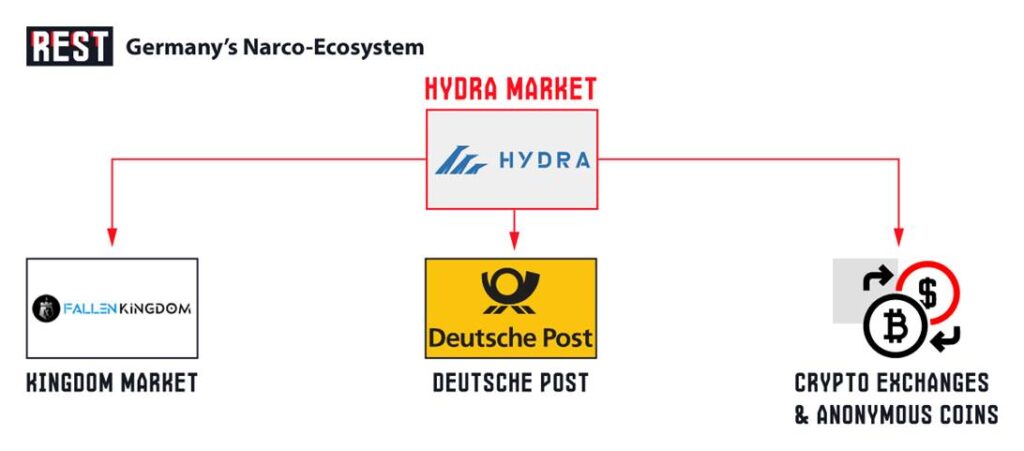
What emerged was “Amazon for drugs”—professional platforms with user reviews, customer service, quality guarantees, and reliable delivery. German-hosted servers provided technical infrastructure while postal services provided distribution. Advanced digital infrastructure and legal data privacy protections, designed for legitimate businesses, created perfect conditions for illegal operations that traditional law enforcement couldn’t handle.
MAFIA COLONIZATION
How ‘Ndrangheta Made Germany Their Northern Capital
On August 15, 2007, six Italian men left a birthday celebration at the Da Bruno restaurant in Duisburg. They never made it to their cars. Two gunmen fired over 70 shots, killing all six instantly in what became known as the Duisburg massacre. The victims had fled to Germany seeking refuge from a blood feud in their Calabrian hometown of San Luca. Instead, they discovered the ‘Ndrangheta’s reach extended far beyond Italy’s borders.
The massacre wasn’t just shocking crime—it was Germany’s wake-up call to a colonization decades in the making. What began as opportunistic immigration by Calabrian families in the 1960s had evolved into systematic territorial control by Europe’s most powerful mafia organization worth €35-40 billion annually.
By 2021, German authorities identified 505 ‘Ndrangheta members living in Germany, though federal estimates suggest the true number exceeds 1,000. The San Luca families alone controlled approximately 200 members across Germany—more than many legitimate corporations. Unlike their Sicilian cousins who attracted attention through spectacular violence, the ‘Ndrangheta operated through what criminologist Zora Hauser describes as “discreet infiltration, a lingering presence.”
Through restaurants, ice cream parlors, construction companies, and real estate firms, they built a parallel economy immune to market forces. Operation Eureka in May 2023—which arrested 108 suspects in Italy and 30 in Germany—revealed how German businesses were systematically coerced into purchasing products from ‘Ndrangheta-controlled suppliers. Germany’s wealthy states became fiefdoms, with the Nirta-Strangio clan controlling Kaarst in North Rhine-Westphalia while rivals dominated Duisburg.
Most disturbing was systematic corruption of German institutions. In 2024, the lead prosecutor investigating Hamburg’s record 16-ton cocaine seizure was arrested for accepting bribes and warning suspects of imminent arrests. Police officers in Offenbach and Bonn were caught collaborating with mafia networks, selling sensitive information for protection money. Operation Eureka tracked €24 million in financial transactions across multiple countries, revealing how German-based operations funded continental expansion.
The transformation was complete: Germany had become the ‘Ndrangheta’s northern capital, providing organizational infrastructure for Europe’s largest criminal enterprise.
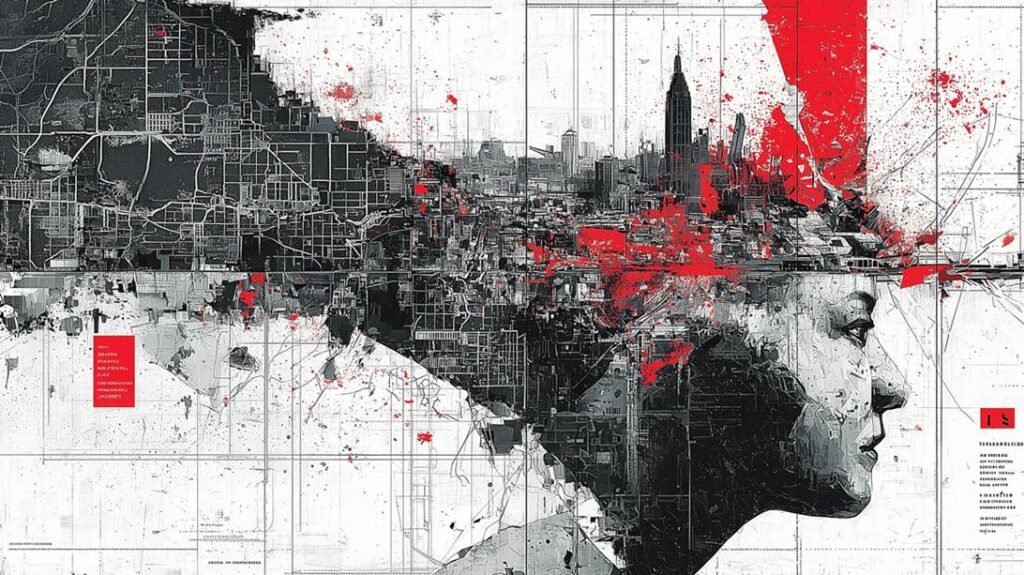
URBAN BATTLEGROUNDS
German Cities Under Drug Siege
The transformation of Germany’s major cities into narcotics capitals represents one of the most dramatic shifts in European urban crime. From Frankfurt’s financial towers to Hamburg’s container terminals, from Berlin’s nightlife districts to Munich’s business centers, organized crime has systematically infiltrated the infrastructure of German prosperity, turning economic assets into criminal weapons.
Frankfurt’s position as Europe’s financial capital made it irresistible to money launderers. The city housing the European Central Bank became the continent’s premier destination for washing drug proceeds, with Moroccan organized crime groups, Serbian mafia, and Balkan gangs competing for heroin trade control. Real estate prices soared as criminal organizations invested cocaine proceeds in luxury properties, distorting housing markets and pricing out legitimate residents. By 2024, Frankfurt ranked among the world’s most expensive cities, partially driven by criminal investment.

Hamburg’s transformation from Germany’s “Gateway to the World” into Europe’s third-largest cocaine port reveals how criminal organizations exploit legitimate infrastructure. The port that symbolized German commercial success became the entry point for 34 tons of cocaine in 2023—triple the 2019 amount. Port corruption reached unprecedented levels, with the Hamburg Port Security Centre establishing anonymous whistleblower portals in 2024 to report “inbound offenders”—employees collaborating with trafficking networks. Criminal organizations used the “rip-on/rip-off” system, removing cocaine from legitimate shipments and resealing containers with counterfeit customs seals.
Berlin’s legendary nightlife scene became a distribution network for hard drugs, with Middle Eastern crime clans and other organized crime groups controlling systematic trafficking operations. Afghan clans dominated hashish and heroin trafficking through Berlin’s diverse immigrant communities. The city’s decentralized structure—a legacy of its divided past—created enforcement blind spots that criminal organizations expertly exploited.
The human cost became impossible to ignore. Drug-related deaths rose 11.9% to 2,227 in 2023, with men accounting for 82.8% of fatalities. What had once been Europe’s most stable urban centers became battlegrounds where criminal organizations wielded resources exceeding those of law enforcement agencies tasked with stopping them.
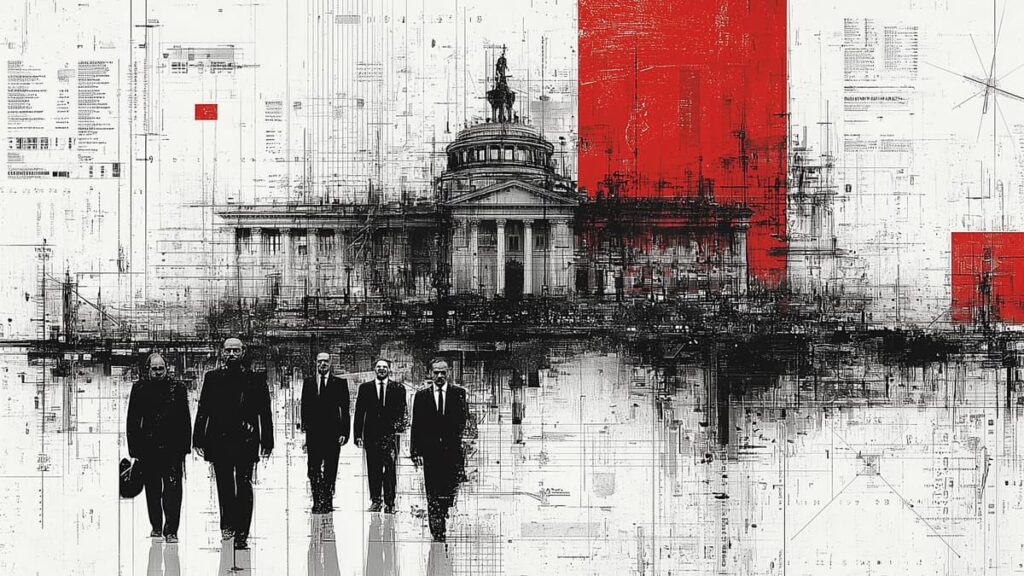
The Axis of Europe’s Drug Empire
What began as isolated seizures and scattered incidents has revealed itself as a structural transformation: Germany is no longer a passive transit zone—it has become the logistical, financial, and digital nucleus of Europe’s evolving drug empire. Each chapter of this investigation illustrates how the country’s economic strengths—its infrastructure, digital capabilities, and financial openness—have been systematically turned against it.
The failure was not sudden. It unfolded gradually, shaped by two decades of political inertia, institutional underfunding, and strategic blindness. From Merkel-era budget orthodoxy to the lack of cross-border enforcement capacity, German policymakers prioritized economic metrics while overlooking a rapidly shifting criminal landscape. As a result, mafias embedded themselves in legitimate business ecosystems, traffickers exploited ports and postal services, and digital marketplaces flourished on German servers with near-total impunity.


